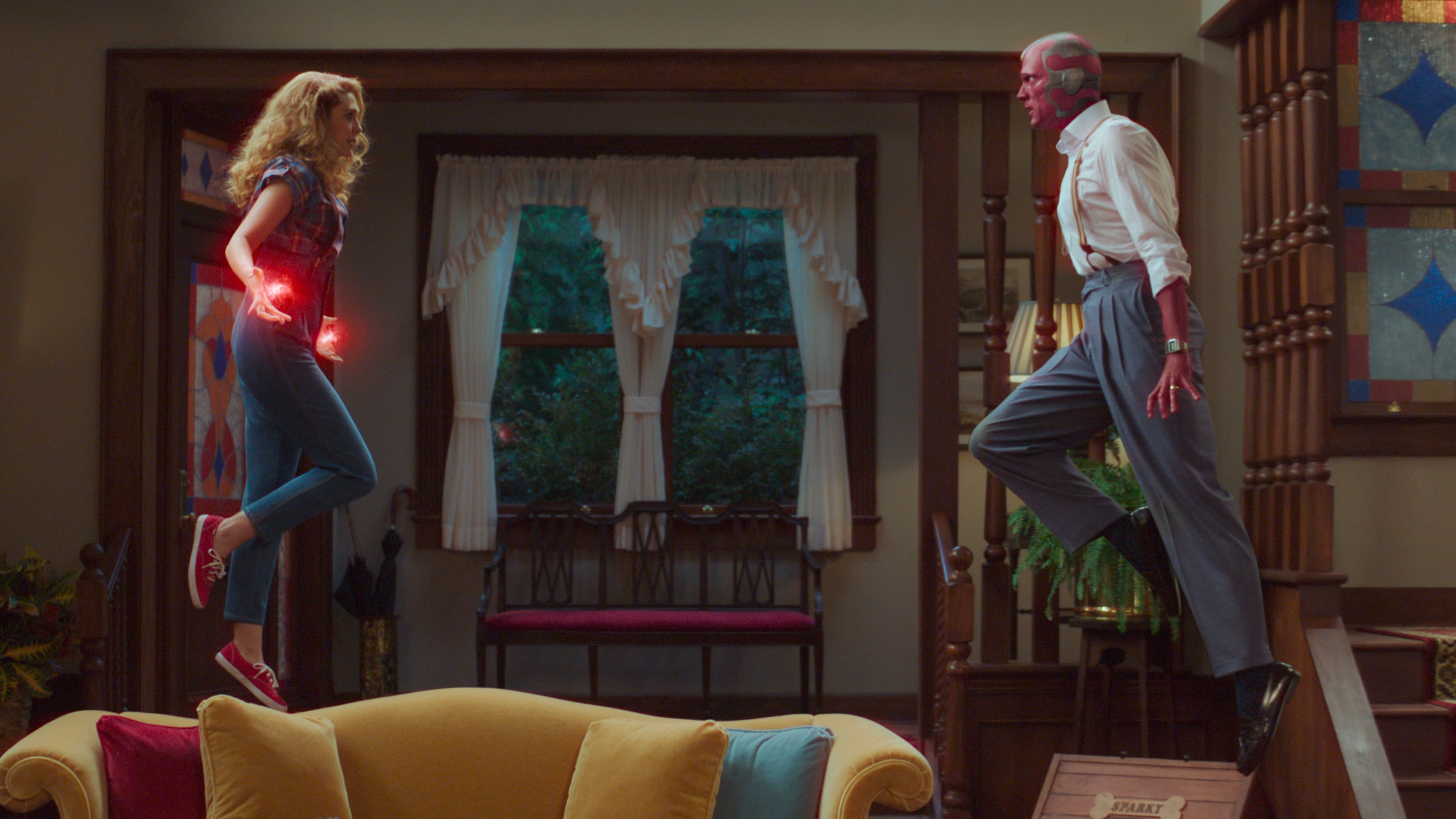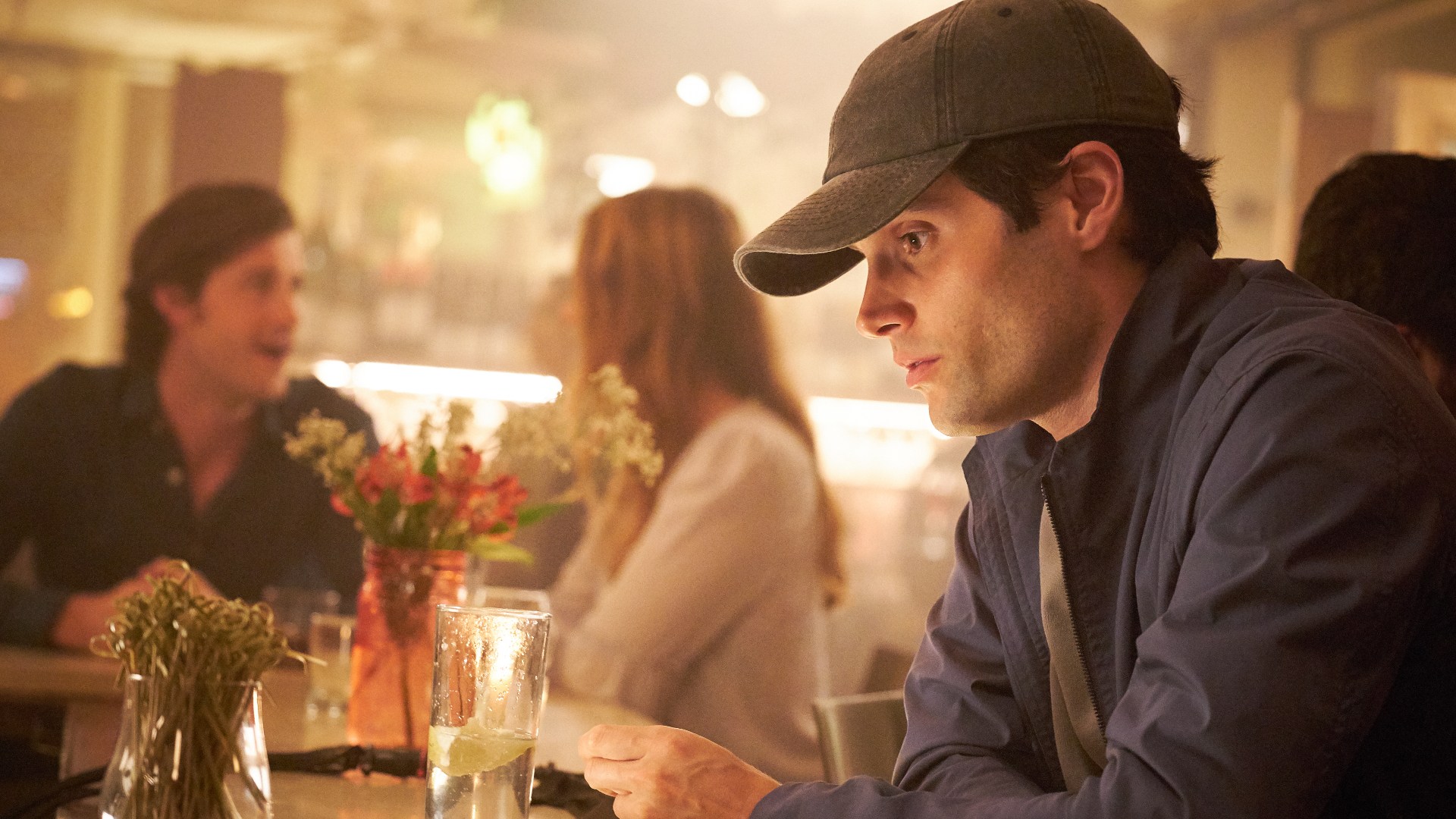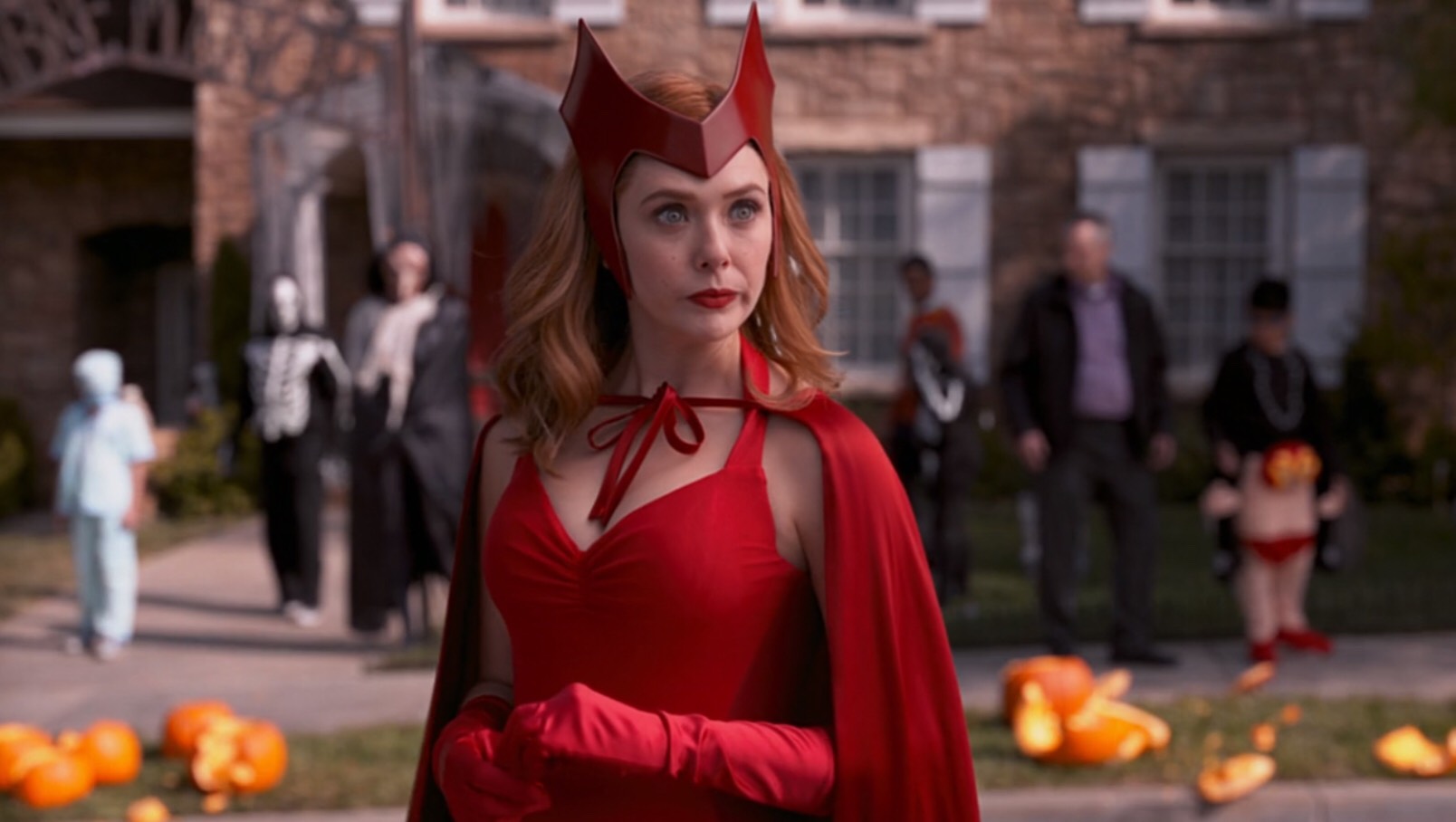WTW debates — binge a TV show or watch it weekly?
How do you prefer to watch a show, all at once or bit by bit?

The latest updates, reviews and unmissable series to watch and more!
You are now subscribed
Your newsletter sign-up was successful
Want to add more newsletters?

ONCE A WEEK
What to Watch
Get all the latest TV news and movie reviews, streaming recommendations and exclusive interviews sent directly to your inbox each week in a newsletter put together by our experts just for you.

ONCE A WEEK
What to Watch Soapbox
Sign up to our new soap newsletter to get all the latest news, spoilers and gossip from the biggest US soaps sent straight to your inbox… so you never miss a moment of the drama!
To binge or not to binge? In this era of streaming TV that's often the question that viewers ask themselves.
Ever since Netflix started releasing its own original series and dropping full seasons all at once, many viewers love having the option to power through and watch all the episodes in a two or three-day period. Some even go all out and binge-watch everything in a single day.
However, some streaming services and channels like Disney Plus, HBO Max, Paramount Plus and the BBC have chosen the old school broadcast TV method — releasing new episodes every week rather than all at once. Prime Video and Hulu have also done this with some of their original series after years of all-at-once premieres. Even Netflix has chosen a weekly release for some of its reality series, like Love Is Blind.
So we’re looking at both sides of the argument right here in a What to Watch debate — do you prefer to binge a show or to watch it weekly?
Do bingeing shows set trends?

Terrell Smith: Allow me to propose that bingers often help set viewing trends. We let the Twitterverse and beyond know what’s worth watching. For example, a show like You owes a lot of its success to bingers.
For those that don’t know, You started off as a series on Lifetime, but the network decided to cancel it after one season. Netflix picked up the series and within a short space of time, it has become one of their most-watched shows. It’s funny how a failing series on Lifetime skyrockets to a top-viewed show on Netflix once the episodes are released in a binge-able format.
Michael Balderston: You and other shows, were definitely saved by Netflix, but there have been plenty of other shows that people binged right away, created a bit of buzz but had no shelf-life whatsoever and were forgotten almost immediately. A recent example is Archive 81. It was viewed almost 100 million hours in its first two weeks, but it quickly was out of Netflix’s top 10, created minimal chatter (despite good reviews) and is already another canceled TV show.
The latest updates, reviews and unmissable series to watch and more!
A show with a weekly release has the opportunity to build a community that is watching something unfold together. You have a full week to discuss or read about an episode and theorize what happens next. If you binge something you generally just want to talk about how it ended. Would Game of Thrones have been as big a hit if everyone didn’t have a week to go crazy about Ned’s death or the Red Wedding? It stays in the conversation longer, which then engrains it into our culture more.
TS: Sure, shows like Archive 81 and even The Get Down were top-ranking shows and both canceled. Bingers can do a lot in terms of making a show popular, but we can’t help a series that the powers that be at Netflix deem too costly to produce.
In terms of shows like Game of Thrones, it may shock you to learn that I, like many, binged the first two seasons of the show to catch up and become the avid fan you have before you today. The ability to binge allowed me to feel capable of jumping into those conversations that you mentioned.
MB: But would that buzz that convinced you to watch have been there if there hadn’t been those 10-week long seasons for a growing community to pore over every detail?
What to do about spoilers?

MB: We both can agree that one of the trickiest things about watching TV today is spoiler etiquette. How long do you have to wait to be able to talk (or in our jobs write) about what happens on a TV show? Something that always sticks in my mind about this is the finale of Breaking Bad where Walter White dies (if anyone is yelling spoilers right now, it’s been 10 years people). I remember the internet picked up a fun piece in a New Mexico paper that ran a fake obit for the character a day or so after it aired and people were not happy — saying it was too soon to be blasting that out.
Similar issues can happen when people binge a show. If someone binges an entire season in its first weekend they’ll want to talk about it, but if their friends haven't seen it that creates issues. With weekly releases, it's easier as everyone has a chance to catch up on the previous episode.
TS: That’s understandable but, let’s be honest, us binge-watchers of the world can’t bear the responsibility of not spoiling episodes. As someone that lives on the grid, you just have to expect spoilers to be everywhere. You have to find the willpower to avert your eyes from every "OMG" tweet and "Did you see that" text message.
Even as someone that prefers to binge content, I understand how hard it can be to avoid spoilers. I remember being unable to watch Game of Thrones live a few times and I had to do everything, but literally bury my head in the sand, to prevent anyone from ruining the episodes. You’ll be glad to know I made it through the HBO series largely spoiler-free (my willpower went out the window when it came to finding out who killed the Night King).
MB: Of course, everybody has some responsibility for trying to avoid spoilers if they want, but can’t there be a reasonable expectation and common etiquette? I’ve always thought two weeks was a good amount of time to give everyone a chance, but then if they haven’t caught up in that time full responsibility shifts to those who haven’t watched it.
TS: Two weeks is a lot to ask. Especially from a society that grows impatient in the 30 seconds it takes for a computer to start up. Patience isn’t exactly our strong suit.
Are some shows just better binged?

MB: Full disclosure, I’ve binged. I’ve gotten hooked on a show, told myself that this will be the last episode for the night and then when it’s over, have an immediate need to find out what is going to happen next. Often shows are just built that way. I can only imagine how quickly people binged 24 considering how those episodes used to end. But, I don’t think that a show like that would be inherently harmed if you couldn’t binge it.
A good TV show is going to be a good TV show no matter how you consume it. If a show only works because you sit down and watch it in a continuous session, that’s not a TV show, that’s a movie. Back to the 24 example, people might have been annoyed at having to wait a week to find out how Jack Bauer was going to diffuse that bomb or whatever, but it made the next episode appointment-viewing.
TS: But some shows lend themselves to back-to-back viewings, with the transitions between episodes often flowing more cohesively as if they were a movie. I feel that the Disney Plus shows Loki and WandaVision should have been released in their entirety on the same day.
I found it slightly annoying having to tune in weekly to Loki and WandaVision. It added a stop-and-go feeling to them, disrupting the flow of the narrative. It also made me have to do more as a viewer, taking time to remember what happened the week before (I was almost tempted to watch the episode recaps — which we all know we skip). As a relative once told me, "don’t rev me up to turn me off."
MB: I can understand people feeling like that, but that’s by design. Creators who know what they’re doing know how to make an episode that is thrilling to watch and makes you immediately want the next one, while also having each episode be able to stand on its own. A good show works in any format, so the idea that a show can or should only be binged doesn’t make sense to me.
How do you prefer to watch your favorite TV shows? Share your thoughts with What to Watch on our social media channels on Twitter and Facebook.

Michael Balderston is What to Watch’s assistant managing editor and lead movie writer, , writing movie reviews and highlighting new and classic movies on streaming services; he also covers a range of TV shows, including those in the Taylor Sheridan universe, Slow Horses, Only Murders in the Building, Jeopardy!, Saturday Night Live and more, as well as the best ways to watch some major US sporting events.
Based outside of Washington, D.C., Michael's previous experience includes writing for Awards Circuit, TV Technology and The Wrap.
Michael’s favorite movie of all time is Casablanca, while his favorite TV show is Seinfeld. Some 2025 favorites include Sinners, One of Them Days and Black Bag for movies, and The Pitt on TV. Follow on Michael Balderston on Letterboxd.

